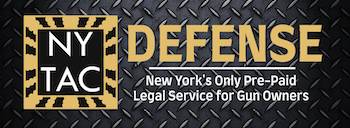Representation.
Attachment
When a plaintiff sues a defendant, under some circumstances, the court can seize the defendant’s property before judgement. This is called attachment. Attachment is an aggressive litigation tactic that the experienced and tough New York tort litigation attorneys at Tilem & Associates PC can pursue against defendants who do not fight fair. On the other hand, the New York tort litigation lawyers at Tilem & Associates, PC are also experienced at aggressively defending against attachments. If you need to file or fight an attachment, our office’s experienced litigators will take the fight to your adversary.
Attachment prevents defendants from selling, hiding, or giving away their property before judgment. Defendants may try get rid of their property to frustrate the plaintiff’s recovery or to prevent the plaintiff from getting jurisdiction over them. Attachment can compel a defendant to come to court and face the plaintiff, even if the defendant has not responded in the past. Attaching a defendant’s property usually has a profound and persuasive effect.
IF A DEFENDANT IS HIDING THEIR PROPERTY CALL THE AGGRESSIVE NEW YORK TORT LITIGATION LAWYERS AT TILEM & ASSOCIATES, PC. WE ARE OPEN 24/7 TO PROTECT YOUR RIGHTS. CALL FOR A FREE CONSULTATION 877-377-8666
The legal definition of attachment is the act or process of taking, seizing, or apprehending, of the defendant’s property. When a defendant’s property is attached it is seized pending the outcome of the plaintiff’s lawsuit. Because court orders attaching property are made before judgement, they are considered drastic and severe. Courts only grant attachment after careful consideration. Courts have discretion to not grant attachment, even if a plaintiff satisfies all the legal requirements.
New York law allows attachment in the following five situations:
- (1) when the defendant is does not live in New York or a foreign corporation that cannot do business in New York;
- (2) the defendant cannot be personally served;
- (3) the defendant may have destroyed, hidden, or taken property outside of the state;
- (4) the plaintiff was a crime victim; or
- (5) the case is based on the judgement of a federal court, the judgement of a state court, or the judgement of a foreign country.
In attachment proceedings, the court needs jurisdiction over the property the plaintiff wants to seize. When a court lacks jurisdiction over the defendant’s body, attachment can be used to obtain “quasi in rem” jurisdiction over a defendant. This means that, if a defendant owns property in New York, the court can attach the defendant’s property and require them to come to court. A court can also attach the property of a non-resident defendant debtor and determine if the property should be used to satisfy the debt.
Attachment is appropriate when the defendant, with intent to defraud their creditors or frustrate the enforcement of a judgment in the plaintiff’s favor, sells property, throws property away, hides property, or takes property out of New York. In these kind of circumstances the plaintiff needs to prove:
- (1) the defendant has sold property, thrown property away, hidden property, or taken property out of New York; and
- (2) the defendant has acted or will act with the intent to defraud or to frustrate judgment.
- (3) the plaintiff has a probability of success on the merits.
To persuade a court that a defendant transferred assets with fraudulent intent, a plaintiff must show one of more of the following:
- (1) large disparity in the value of the asset and the price;
- (2) a close connection between the transferor and transferee;
- (3) the transferor knew of the creditor’s claim and the transferor’s inability to pay it;
- (4) the transferor’s insolvency due to the transfer;
- (5) the financial condition of the defendant before and after the transaction;
- (6) the existence or cumulative effect of transactions a course of conduct after taking on debt, financial difficulties, or the threat of suits by creditors;
- (7) the general timeline of the transactions;
- (8) the transaction is questionable and did not happen in the typical course of business;
- (9) the transaction was secret or done with secrecy;
- (10) defendant used fake names or businesses to execute the transaction;
- (11) the defendant transferred the property, but, still kept control of it.
Courts look to these factors because fraudulent intent is typically exceedingly difficult to establish. There is usually no direct evidence. That is why it is important to hire attorneys who litigate issues of facts very aggressively. The New York attachment lawyers at Tilem & Associates, PC argue factual issues in the most serious cases, including homicide. Our lawyers have the experience you need. The New York tort litigation lawyers at Tilem & Associates, PC take the fight to your adversary over the facts ever time. Call us today for a free consultation.
IF A COURT ATTACHED YOUR PROPERTY CALL THE NEW YORK TORT LITIGATION ATTORNEYS AT TILEM & ASSOCIATES FOR THE STRONGEST POSSIBLE LEGAL DEFENSE. PROTECT YOUR ASSETS. OUR OFFICE IS OPEN 24/7 CALL NOW 877-377-8666

















